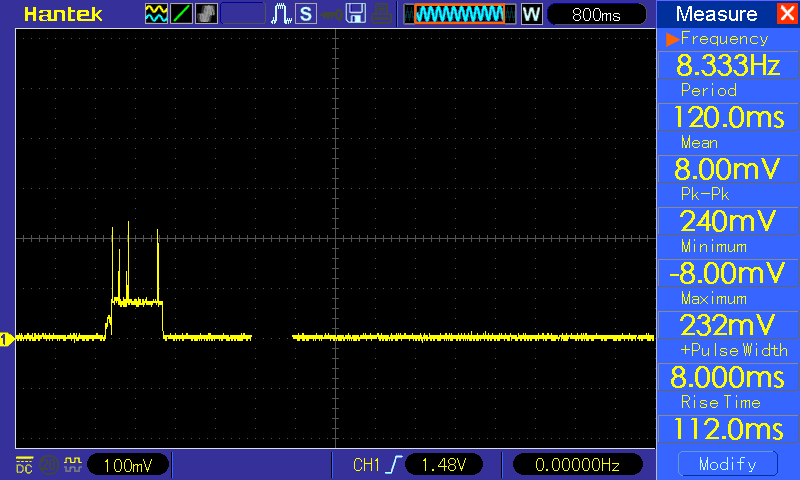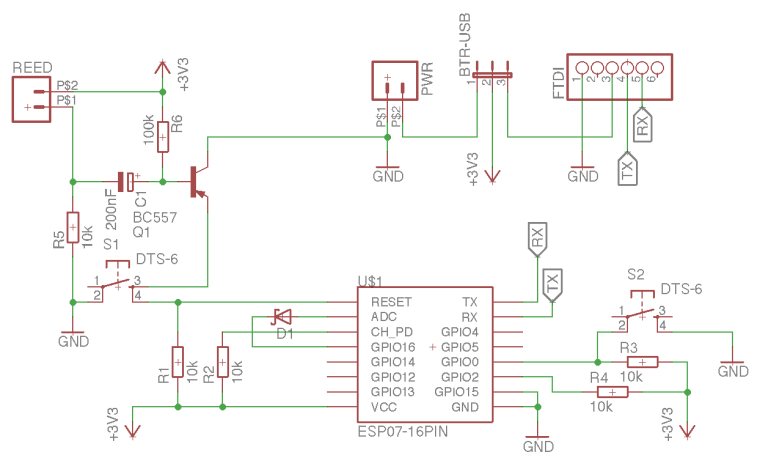

you need a 5v-3.3v voltage divider and connect that to the battery. Also, all you are measuring is the 3.3v from the d1 minis regulator. Hum_str.toCharArray(humidity, hum_str.length() + 1) Ĭlient.publish("dryer/humidity", humidity) ĬtServer(mqtt_server, mqtt_port) I want to wake up my ESP8266 from deepsleep using any of various external buttons. The concept actualy worked well with 3 minutes deep sleep (it worked 11 days) The pir is constantly resetting the d1, you need a circuit to pull rst high until your ready to sleep. Temp_str.toCharArray(temperature, temp_str.length() + 1) Ĭlient.publish("dryer/temperature", temperature) Compute heat index in Celsius (isFahreheit = false)įloat hic = dht.computeHeatIndex(t, h, false) Compute heat index in Fahrenheit (the default) Serial.println("Failed to read from DHT sensor!") Check if any reads failed and exit early (to try again). Read temperature as Fahrenheit (isFahrenheit = true) Read temperature as Celsius (the default)

Sensor readings may also be up to 2 seconds 'old' (its a very slow sensor) Reading temperature or humidity takes about 250 milliseconds! as the current DHT reading algorithm adjusts itself to work on faster procs. tweak the timings for faster processors. Note that older versions of this library took an optional third parameter to #define DHTPIN 2 // what digital pin we're connected toĬonst char* mqtt_server = "mqttserverip" Ĭonst char *mqtt_client_name = "DryerMCU" // Client connections can't have the same connection name I'm putting the ESP to sleep using Code: Select all ESP.deepSleep (10000000, WAKERFDEFAULT) // Sleep for 10 seconds It seems to go to sleep but then upon waking it hangs, I have a Node MCU v2 breakout board similar to this. I have soldered a wire from GPIO16 to RST. I want to be able to put t into deep sleep to preserve battery life.

and at the end of setup (end_of_setup = true).I have a temperature/humidity project using an ESP-01 and DHT11. Call this twice: in the beginning of setup (end_of_setup = false) If powered on (not a deep-sleep reset), nothing will happen. Deep-sleep for specified amount of hours, one hour at a time. The function I used to set the counter and deep-sleep is listed below. The modes and APIs can be found in the documentation. This also seems true whether calibrating the radio or not - in theory not calibrating should consume less energy. According to power measurements, the ESP8266 consumes about 170 mA of current for a second when waking up. After that, radio will be disabled on wake up until it's time to actually do something, in which case the radio is enabled.

To save battery in theory, I made it so that the first time it powers on (not waking from deep-sleep), it will calibrate the WiFi radio once. This approach uses the RTC memory to keep track on how many times it has awakened. I decided to make the ESP8266 sleep one hour at a time. In my testing I noticed it sometimes slept for 3 hours, sometimes for 6, and then sometimes it didn't wake up at all. Does seem to work if I use my finger to touch one of the leads on the resistor I have between GPIO16 and RST. One would put it to sleep like this: ESP.deepSleep(ESP.deepSleepMax()). Hi all, Short version On an ESP-M3/ESP8285, connecting GPIO16 to RST is causing what appears to be rapid resets, instead of waking up after the set interval. With any larger value it never wakes up.Īlso apparently, this was later changed so that the ESP can sleep for a few hours at a time, but it's not constant at all for how long - the length depends on the state of the RTC. We have to set a predefined amount of time, after it is over, the built-in timer wakes up the chip. Since the ESP.deepSleep function takes the time in microseconds, a quick calculation ( 4294967296*1e-6/60 = ~71.58) shows it can sleep a maximum of approximately 71 minutes at a time. After activating the deep sleep mode, there are several ways through which the NodeMCU board can be woken up such as: Timer Wake Up External Wake Up ESP8266 Timer Wake Up The real-time controller (RTC) has a built-in timer.
AFTER WAKING FROM DEEPSLEEP IT WONT CONNECT ESP8266 32 BIT
Apparently, originally it supported only 32 bit integer values. Even if just lying on the soil, the setup actually doesn't stick out that much.Įverything went well until I realized the deep-sleep function of an ESP chip is very unreliable.


 0 kommentar(er)
0 kommentar(er)
